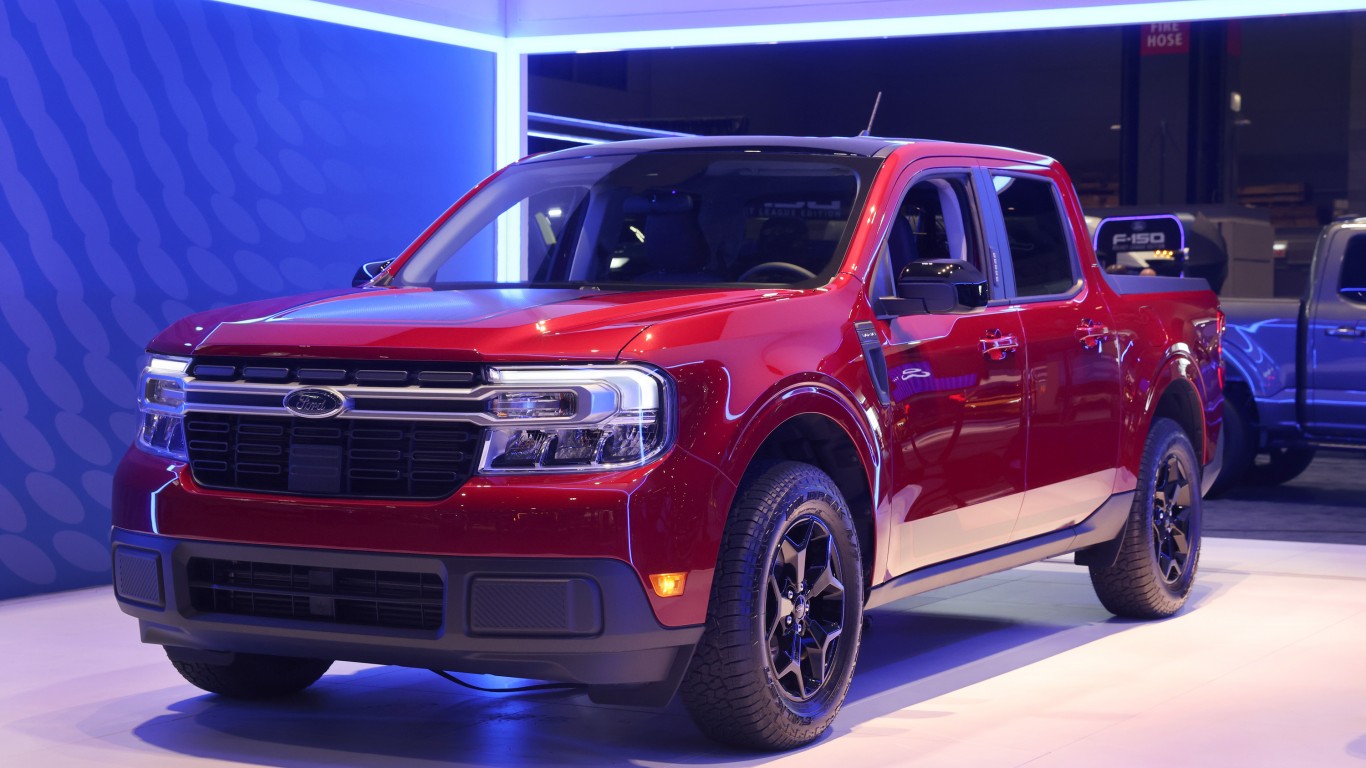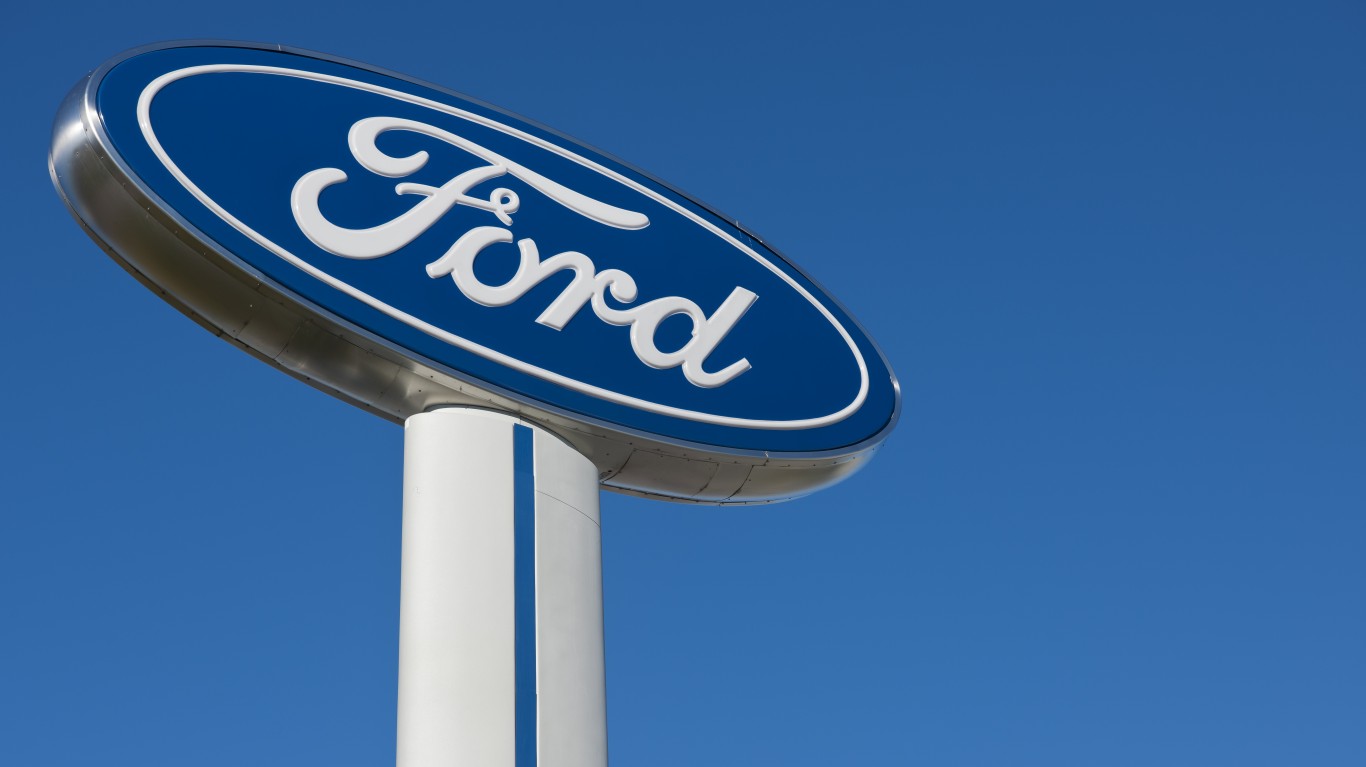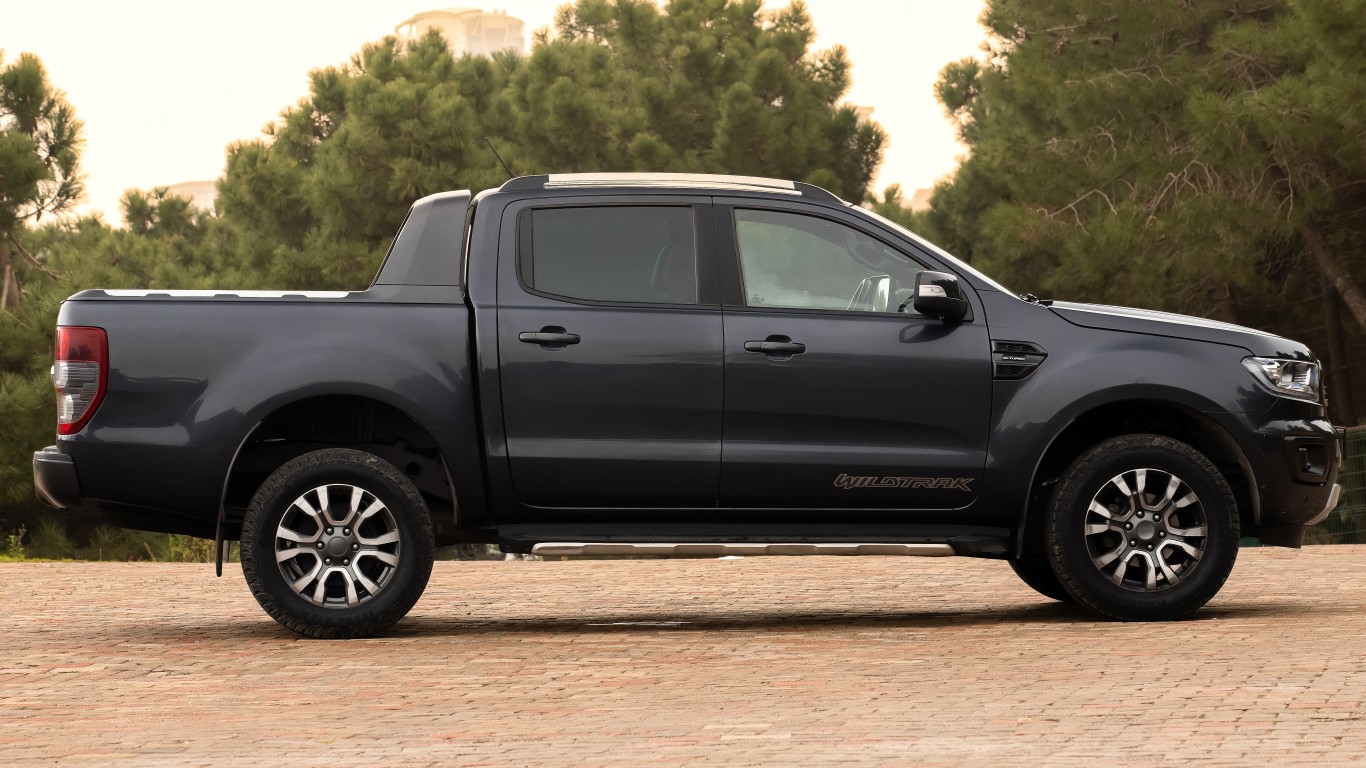
Ford has long been synonymous with trucks, so much so that the Blue Oval stopped manufacturing most of the cars in its lineup to focus on SUVs, EVs, and pickup trucks. The Ford F-Series has been the best-selling truck in the world for 46 years. With sales having risen over 22% YTD, it doesn’t appear that the F-Series will be relinquishing that title anytime soon. However, while the full-size F-Series is the undisputed king of the market, Ford’s truck lineup also includes the midsized Ranger and compact Maverick models. While they are often lumped into the same category (mostly because they are not full-size trucks), these are actually two very different pickups that are posting very different sales numbers in 2023. Each model has distinct advantages and disadvantages. As we consider how these smaller pickups are moving off dealer lots this year, we’ll also explore the pros and cons of each model so you can decide which would best fit your needs. (You can check out the full list of America’s favorite trucks here.)
Maverick vs. Ranger: Sales

Ford introduced the Maverick in 2022. (Fun fact: Ford manufactured a compact car in the 1970s that was also known as the Maverick. No relation.) Orders for the compact pickup were so brisk in 2022 that the company was forced to temporarily pause new requests as it fulfilled backorders.
YTD sales of the Maverick have grown by over 28% in the U.S. More than 70,000 Mavericks have been sold this year, outpacing sales of the Ranger by a wide margin.
The Ranger was introduced in 1982 (model year 1983) as Ford sought to compete with small pickups from Japan. The truck was a mainstay in the company’s North American lineup until 2011. After being shelved for eight years, the Ranger was resurrected for the 2019 model year.
After the Ranger’s reintroduction, U.S. sales peaked in 2020 with over 101,400 sold. Demand for the mid-sized truck declined sharply in 2022. Not coincidentally, that drop off came the same year as the Maverick’s debut. The Ranger’s downward trend has continued this year. Only around 32,000 Rangers have rolled off dealership lots in 2023, down about 32% YTD. The Maverick has more than doubled the sales numbers of the Ranger in 2023.
The contrasting sales of the Maverick and Ranger illustrate the changing priorities of customers who want a pickup but are not necessarily interested in full-size models such as the F-Series. Here’s a look at some of the main differences between these smaller Ford trucks.
Maverick vs. Ranger: Fuel Economy

One of the starkest contrasts between these two models is their fuel efficiency. With its standard gas-electric hybrid powertrain, the Maverick is the clear winner in this category with an EPA-estimated fuel efficiency of 42 mpg city/33 mpg highway/37 mpg combined. While EV sales continue to lag for many manufacturers, hybrids are in high demand. Customers can enjoy greater fuel efficiency without “range anxiety” (stress caused by a lack of charging stations on a longer road trip). As a hybrid, the Maverick offers an attractive alternative to truck customers who aren’t ready to switch over to an EV.
The Ranger’s standard 2.3L gasoline engine offers a much lower fuel efficiency of 21 city/26 highway/23 combined. That is only marginally better than the F150 (3.3L V-6 model), so some consumers may opt for the full-size truck since it is almost a lateral move regarding fuel efficiency.
In September, Ford announced plans to release a plug-in hybrid powertrain for the Ranger in Australia, Europe, and New Zealand. It will not be available in the U.S., though. The company seems to believe that environmentally-concerned and budget-conscious customers in the U.S. will continue to move toward the smaller hybrid Maverick, the larger hybrid F-150, or the fully electric F-150 Lightning.
Maverick vs. Ranger: Capability and Performance

The standard Maverick is equipped with a 2.5L 4-cylinder engine paired with an electric motor. It features 191 horsepower and 155 lb-ft of torque. Customers can opt for the 2.0L EcoBoost engine which raises the truck’s capability to 250 horsepower and 277 lb-ft of torque.
The Ranger is far more powerful than the Maverick. The 2.3L EcoBoost 4-cylinder engine provides 275 horsepower and 310 lb-ft of torque. The 2.7L EcoBoost V6 offers 315 horsepower and 410 lb-ft of torque.
Not surprisingly, the Ranger has significantly larger payload and towing capacities. When properly equipped, the Ranger can haul a load of 1,860 pounds. It has a towing capacity of 7,500 pounds. The Maverick can only handle a payload of 1,500 pounds. Its towing capacity tops out at 4,000 pounds, with some models featuring an even lower towing capacity of 2,000 pounds.
Maverick vs. Ranger: Size and Style

The Maverick SuperCrew body style measures 68.7 inches tall, 72.6 inches wide, and 200.5 inches long. Conversely, the Ranger SuperCrew measures 71.6 inches tall, 78.8 inches wide, and 210.6 inches long.
Depending on trim level and configuration choices, the Maverick weighs between 3,550 to 3,750 pounds. That is roughly the same weight as a mid-sized car. Meanwhile, the Ranger weighs from 4,145 to 4,441 pounds.
The Maverick features a unibody construction platform like the Ford Escape and Bronco Sport. The Ranger is built with Ford’s more rugged T6 body-on-frame construction, the same platform as the Bronco.
The Maverick’s car-like body, lower curb weight, and smaller size make for easier maneuvering. For customers looking for a daily driver, especially in crowded urban environments, the Maverick has a decided advantage over the Ranger.
The Ranger features a 6-foot truck bed, while the Maverick’s bed is only 4.5 feet long. The Maverick features a multi-configuration tailgate to help offset the shorter bed, but customers who plan to do a lot of hauling would be better served by opting for the Ranger. The stiffer body construction of the Ranger can also handle more rugged off-road terrain than the Maverick.
Maverick vs. Ranger: Interior

The Maverick comes with a pretty nice array of standard features, including an infotainment system with an 8-inch touchscreen, Apple CarPlay, Android Auto, and a Wi-Fi hotspot. All of those features are extras on the Ranger. The Ranger’s standard features include a much smaller 3.5-inch screen. You can upgrade any of the interior features, of course, but it will make the price of the already more expensive truck even higher.
Both models can seat five passengers, but the Ranger offers a larger cab and a more spacious back seat. Adults may still find the backseat in both models to be a bit cramped, though.
Maverick vs. Ranger: Reliability

The two trucks are virtually identical in terms of their reliability scores. J.D. Power gives the 2023 Maverick an 85, while it tags the Ranger with a score of 86. Any score from 81-90 is considered “great.”
Maverick vs. Ranger: Price

When considering why the Maverick is outselling the Ranger by more than two to one, the price point is certainly near the top of the list. The Maverick lists from $22,490 to $35,000, depending on trim and options. The Ranger’s price point, meanwhile, begins at $27,195 and goes as high as $45,000+.
A very well-equipped Maverick can be cheaper than a stripped-down Ranger, making it an obvious choice for customers who don’t need a heavy-duty truck.
Maverick vs. Ranger: Overall

American consumers clearly prefer the Maverick over the Ranger. The sales numbers aren’t even close. But which is right for you?
If you need a more rugged truck to handle large loads, tow trailers, or navigate off-road terrain, then the Ranger is the better choice. However, if you don’t need this type of work truck, then the Maverick is the easy winner. The fuel efficiency, maneuverability, and low price point continue to woo more American consumers away from the Ranger and toward the Maverick. It might be enough to win you over, too.
Get Ready To Retire (Sponsored)
Start by taking a quick retirement quiz from SmartAsset that will match you with up to 3 financial advisors that serve your area and beyond in 5 minutes, or less.
Each advisor has been vetted by SmartAsset and is held to a fiduciary standard to act in your best interests.
Here’s how it works:
1. Answer SmartAsset advisor match quiz
2. Review your pre-screened matches at your leisure. Check out the advisors’ profiles.
3. Speak with advisors at no cost to you. Have an introductory call on the phone or introduction in person and choose whom to work with in the future
Thank you for reading! Have some feedback for us?
Contact the 24/7 Wall St. editorial team.




